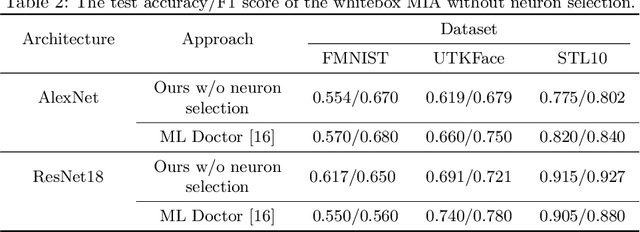Unveiling the Unseen: Exploring Whitebox Membership Inference through the Lens of Explainability
Paper and Code
Jul 01, 2024



The increasing prominence of deep learning applications and reliance on personalized data underscore the urgent need to address privacy vulnerabilities, particularly Membership Inference Attacks (MIAs). Despite numerous MIA studies, significant knowledge gaps persist, particularly regarding the impact of hidden features (in isolation) on attack efficacy and insufficient justification for the root causes of attacks based on raw data features. In this paper, we aim to address these knowledge gaps by first exploring statistical approaches to identify the most informative neurons and quantifying the significance of the hidden activations from the selected neurons on attack accuracy, in isolation and combination. Additionally, we propose an attack-driven explainable framework by integrating the target and attack models to identify the most influential features of raw data that lead to successful membership inference attacks. Our proposed MIA shows an improvement of up to 26% on state-of-the-art MIA.
 Add to Chrome
Add to Chrome Add to Firefox
Add to Firefox Add to Edge
Add to Edge